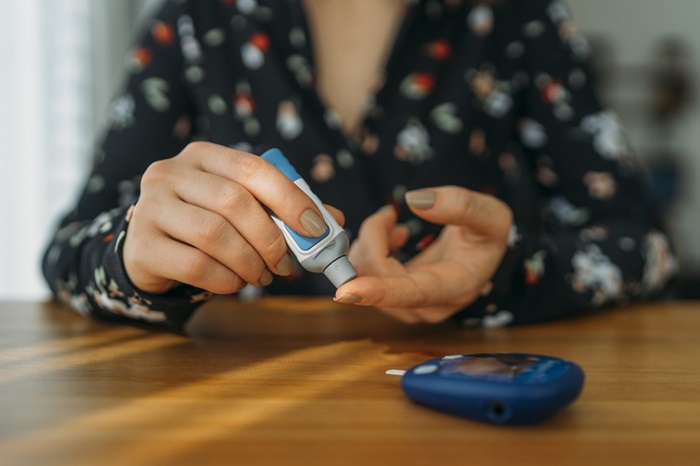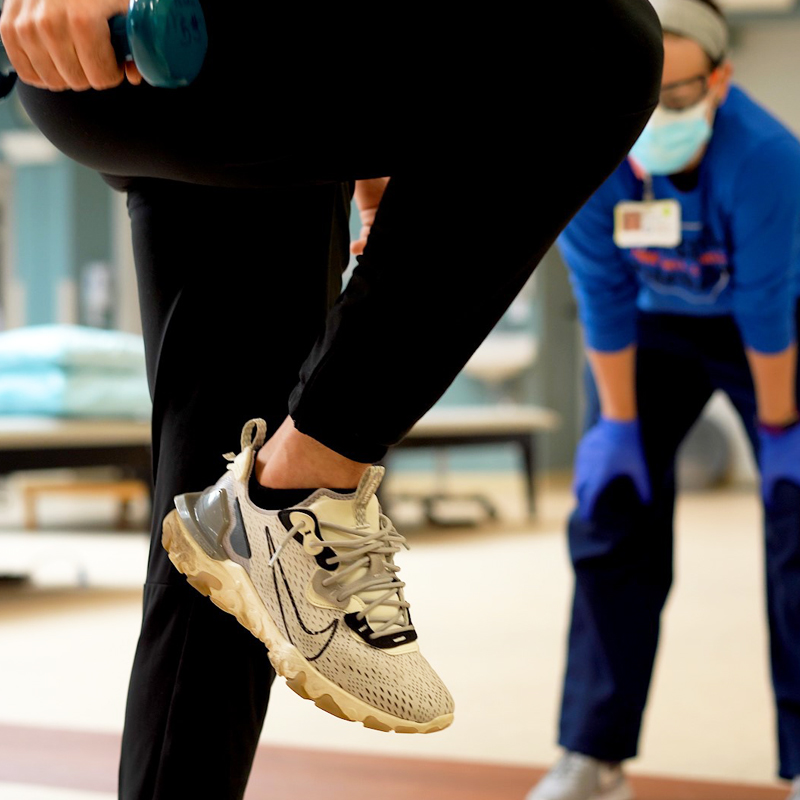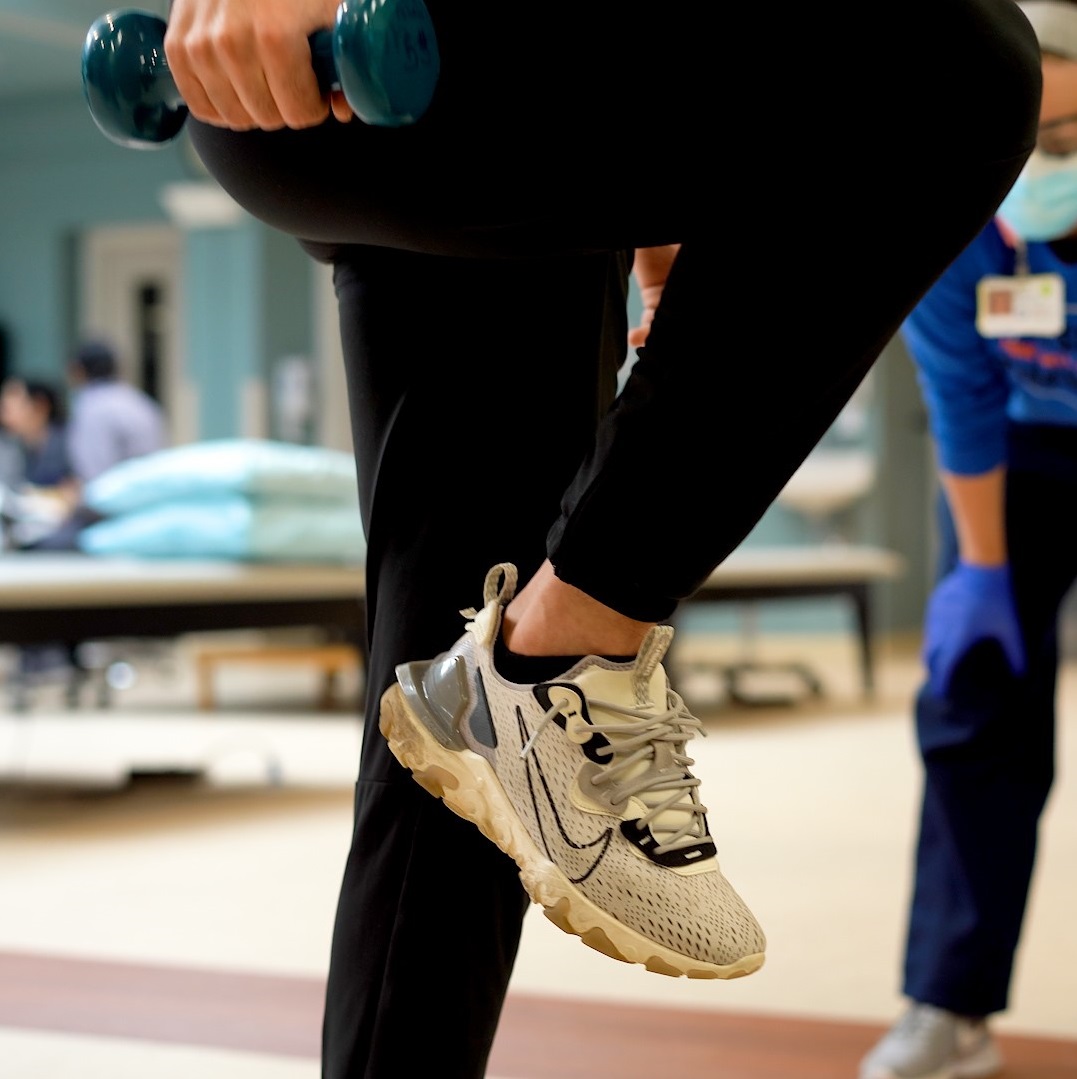Newly Diagnosed with Diabetes? Top Five Ways to Manage It

September 27, 2021
If you’ve recently been diagnosed with diabetes, you’re far from alone, though you may feel that way. About 1.5 million adults in the United States are newly diagnosed with the disease each year, adding to the estimated 30 million Americans living with the condition, according to the Centers for Disease Control and Prevention.
Despite how common diabetes has become, it’s still an overwhelming diagnosis. That mental load—especially as you adjust to your new normal—can make it difficult to comprehend just how you’re going to properly manage your diabetes day-to-day.
“A lot of times people with diabetes can feel they’re alone because they aren’t aware of how others have handled their diagnosis and journey to better control the disease,” explains endocrinologist Sameera Daud-Ahmad, M.D., medical director of Pascack Valley Medical Center’s outpatient Center for Diabetes, Nutrition and Metabolism. “You feel lost and like this big diagnosis has been dumped on you. Don’t panic, but let yourself absorb the information and make appropriate lifestyle adjustments.”
Adds Maureen Kane, APN, CDCES, a nurse practitioner and certified diabetes care and education specialist at the center, “You can get overwhelmed, frozen and stuck, with feelings of depression and ‘Why me?’ But as someone said to me, ‘If you’re going to eat an elephant, you take it one bite at a time.’”
The Risks of Diabetes
Diabetes occurs when the pancreas either doesn’t produce insulin—needed to convert sugar into energy—or cells become resistant to insulin’s effects. Type 2 diabetes is the most common form, according to the National Institutes of Health.
People with diabetes face higher odds of health complications such as:
- Heart attack
- Stroke
- Vision problems or blindness
- Nerve damage, especially in the hands and feet
- Kidney dysfunction
- Teeth and gum problems
- Poorly healing wounds that may require lower limb amputation
The stakes are high, but a variety of medications and lifestyle approaches can help keep blood sugar levels under control. Patients with Type 2 diabetes might be prescribed both insulin and/or oral medications.
But diligent self-care benefits those with diabetes in a bevy of ways. When blood sugar levels are kept in the normal range (which is an individualized goal), you’re more likely to be more energetic, less tired and thirsty, and need to urinate less frequently. You may also deal with fewer infections and heal more efficiently, as well as have a lower risk of long-term complications.
“Getting the diagnosis is not necessarily under your control, but you can certainly reduce the risk of future complications due to uncontrolled diabetes,” says Dr. Daud-Ahmad.
Top Tips for Managing Diabetes
Beyond lifestyle and medication adherence, here are additional ways to manage diabetes:
- Try a team approach: “Surrounding yourself with the right team, including a certified diabetes care specialist and educator, registered dietitian and the right practitioners, is crucial,” Maureen says.
- Gather the troops: Support from family and friends is crucial as you implement the necessary lifestyle changes to control blood sugar levels. It’s also wise to join a support group, whether online or in person, to seek encouragement from others with diabetes. “Sometimes diabetes can be a lonely diagnosis if you don’t share,” Maureen says.
- Find an exercise partner: Joining forces with a friend for daily walks, gym treks or other physical activity holds both of you accountable.
- Educate yourself: Take classes with certified diabetes care and education specialists to learn about living with diabetes. Check with your health care provider or search online for options. “Don’t try to learn everything in one day, because that’s not going to happen,” Dr. Daud-Ahmad says. “I’ve been practicing 10 years and I’m still learning new things about diabetes.”
- Stay realistic: “Don’t make a drastic change in lifestyle, because that can kick off depression,” Dr. Daud-Ahmad advises. “Small steps over time will lead to change that sticks. If it’s your birthday, it’s OK to enjoy that cake, but discuss it with your doctor ahead of time if you need to adjust your medicine or activity pattern for that specific meal.”
The material provided through HealthU is intended to be used as general information only and should not replace the advice of your physician. Always consult your physician for individual care.
Find a doctor near me
Five Tips for a Healthier Workout

Three of our cardiologists share how to fit heart healthy exercise into even the busiest schedules.
Find a doctor near me

How to Check Your Heart Rate
Learn how to check your heart rate. Dr. Batsides offers guidance on understanding your pulse, improving your health, and scheduling an appointment. Call 800-822-8905.

Preventing Blood Sugar from Dropping at Night
Hypoglycemia occurs when blood glucose levels drop below normal - typically 70 milligrams per deciliter.

Getting Back on Track After a Sports Injury
Recover from sports injuries. Dr. Mehta offers expert advice and a recovery plan for athletes. Regain strength and mobility. Learn more.

How to Beat Brain Fog
Beat brain fog. Dr. Duncan offers tips for improved focus and memory. Learn strategies for better sleep and cognitive health. Call 800-822-8905.
